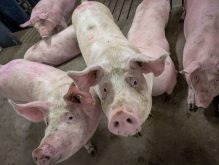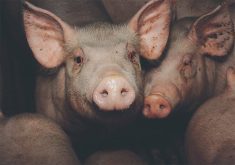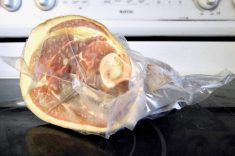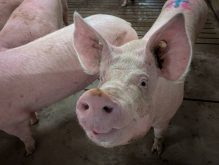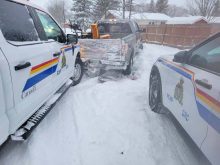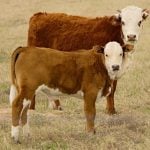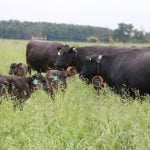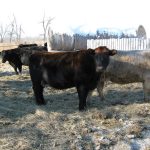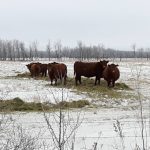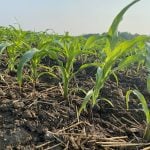Rudy Wall of Cochrane Creek Farm doesn’t just sell hot dogs from the heritage breed pigs that he raises on his farm, he’s also serving up food security, food quality and food availability for the people he feeds.
Wall’s free-range pig farm north of Petersfield, Man., is a small operation by modern commercial standards, but it gives him the opportunity to grow food of a certain quality that appeals to him and his customer base.
“We wanted to look at other ways of doing it,” says Wall. “Doing it on a small-scale, direct-to-farm to customers, building a relationship with our community, growing good food for our community is how we feel about it.”
Read Also
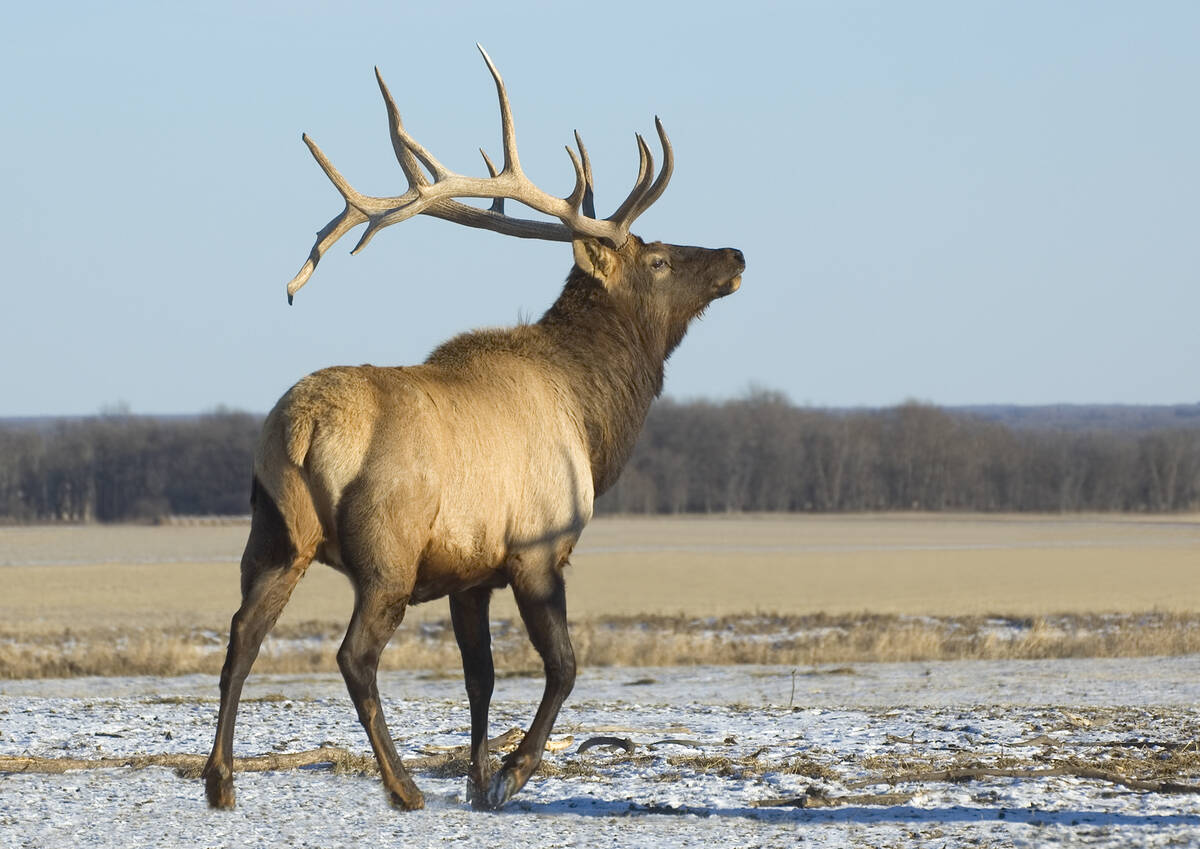
Manitoba Beef Producers targets elk surge, wildlife losses in resolutions
Resolutions at last month’s Manitoba Beef Producers meeting seek help to rein in elk and deer populations, expand fencing supports and improve compensation for wildlife damage.

To this end is where Wall takes his wares out into the community in search of hungry hot dog patrons. He typically sets up his trailer cart in parking lots in Selkirk during the week, at St. Norbert Farmers’ Market in Winnipeg on Saturdays and then out onto a frozen Lake Winnipeg on Sunday afternoons.
He’s been taking his cart onto the Lake Winnipeg ice selling hot dogs for the past two winters. Almost by that cold, hard fact – and the friendly way in which he interacts with his customers – you can guess that Wall loves what he does.
Production
Wall’s Cochrane Creek Farm initially forayed into livestock production with egg-laying chickens and goats in 2010, but he has solely focused on pig production since 2021.
The vast majority of the work needed to keep the pigs happy at Cochrane Creek Farm is handled by Rudy. But his partner, Rebecca McKay, who works during the day in Winnipeg, also does daily chores on the farm after her commute from the city and helps out with sales at the cart whenever she can.
Wall gets his stock as piglets from a local producer in Fraserwood and finishes them over a period of five months to get them to market weight. He buys feed grains from a local supplier and mixes it with soybeans and a mineral base using a vintage Mix-Mill feed processor to ration his pigs’ nutritional requirements.
Only about 70 pigs run through Cochrane Creek Farm each year, but it’s a number that allows Wall to control the quality of meat he brings to market.
“There’s a lot of different ways that you can raise livestock. There’s no perfect way and there’s no right way,” says Wall. “We’ve chosen to raise heritage animals so that they’re a long-haired animal and they can be outside… we’ve chosen free-range as well so that we have a different quality of meat, and we’ve chosen local businesses for the production of it so we can reinforce small family businesses.”

Once the pigs are market-ready, Wall ships them to BJ Packers in Beausejour for processing and then the carcasses are shipped to Baron’s Meats in Lockport for processing into individual cuts, sausage-making, and of course, his hot dogs.
Though it’s not only hot dogs that Wall sells. Many of the other cuts of pork you’d expect from a pig such as pork chops, bacon, and ribs can also be purchased from his cart.
Community
Wall firmly believes in building a food relationship with the community that he serves. This has sometimes meant that he sells his pork products in farmers’ markets in downtown Winnipeg where there can be less food availability for people. He’s also employed practices such as ‘pay-it-forward’ for customers who want to leave a little extra money in order that he can give free food to people who are less fortunate.
“Those are the kind of reasons that we got into farming,” says Wall. “A better connection between our food and our people.”

Having previously lived in Winnipeg, Wall recalls a time when he and his partner turned their front yard into a garden. He was surprised at the number of kids who walked by who had never seen a garden nor what a carrot or pepper plant looked like.
“That’s when we realized the disconnect that we have in our food system is much larger than we understand,” adds Wall. “We’re trying to create a connection between people and their food. That’s why we’re here.”
Future plans
Other than a corralled area with wood fencing and several small structures for shelter, the pigs are free to run around as they like on Cochrane Creek Farm – but an electric fence does keep the pigs in if they try to wander too much.
The pigs have yet to be prone to any acts of predation, though Wall does have guardian dogs that keep a close eye on things. For the most part though, the pigs take care of themselves.
In the future, Wall plans to expand his operation to make more use of the 60 acres of arable land on his property.

“Now that we’ve had some success with the free-range aspect, we want to expand that a bit and go to a pasture environment so the pigs have even more space,” says Wall. “I’d like to go six pigs in six acres.”
Wall feels this would further improve the quality of his pork and it would allow him to raise about 70 pigs on his property at once.
“That’s enough for us,” says Wall. “We’re small, we have to stay small. If we get too big, we lose our quality and that’s something we’ve talked a lot about.”
You can follow Cochrane Creek Farm on Instagram at cochrane_creek_farm.




